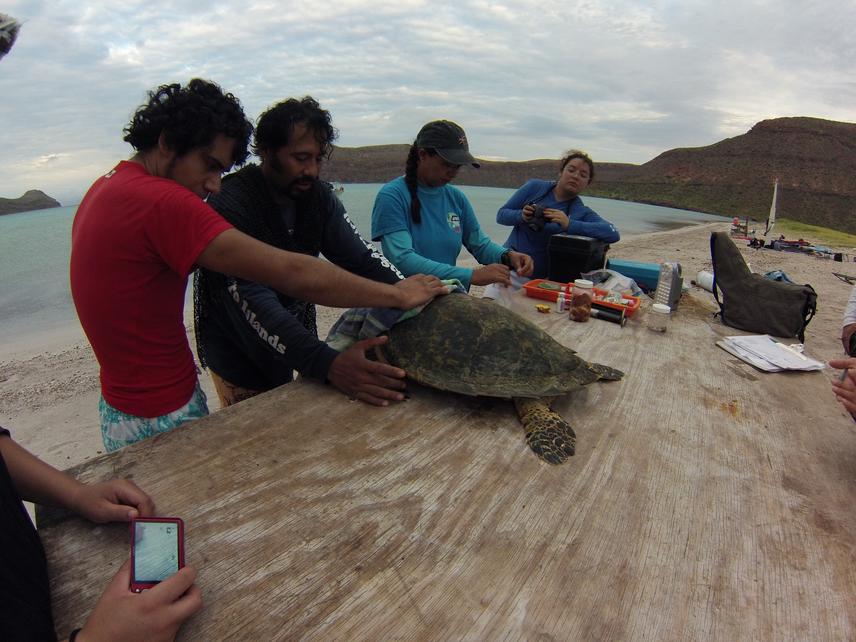Stephanie J. Rousso
Other projects
15 Jul 2013
Building Capacity for a Community-Based Marine Turtle Tourism Conservation Model
We aim to create a decision-making tool which includes scientific-based recommendations for conservation tourism activities focused on endangered species.

The cape region of Baja California Sur is growing exponentially as a famous tourism destination at a rate in which wildlife protection efforts cannot sustain. Rather than fight coastal development and high-impact tourism activities, we aim to involve tourism groups scientific activities to determine the best way to protect endangered species habitat and engage communities in citizen science monitoring and outreach.
Our project uses olive Ridley sea turtle nesting activity as an indicator for justifying and quantifying impacts from existing coastal development and tourism activities. After we have evaluated impacts, we can then make sound, scientific recommendations that can be applied for future developments. This second grant award allows us to expand to work with All Terrain Vehicle tourism and resident groups. These groups operated ATVs in nesting habitat that damages habitat and inhibits nesting. In 2015, we will be training these groups to monitoring nesting and maintain the beach for sea turtles. This opens opportunities for us to raise awareness with large-scale tourism groups beyond the groups we engaged in 2013 from our first grant award.
Once we have sufficient data about nesting from developed areas, undeveloped areas, and areas of ATV operation, we will work with university students studying alternative tourism and marine biology. During academic workshops, students will propose recommendations that we can incorporate into a Model for Conservation Tourism. This model once final will then be presented to the government, real estate companies, and developers. This model is not intended to work to change laws, but rather be a supplemental regulatory tool whereby training and education will be required, yet the effort will be sustainable and applicable on a large scale.